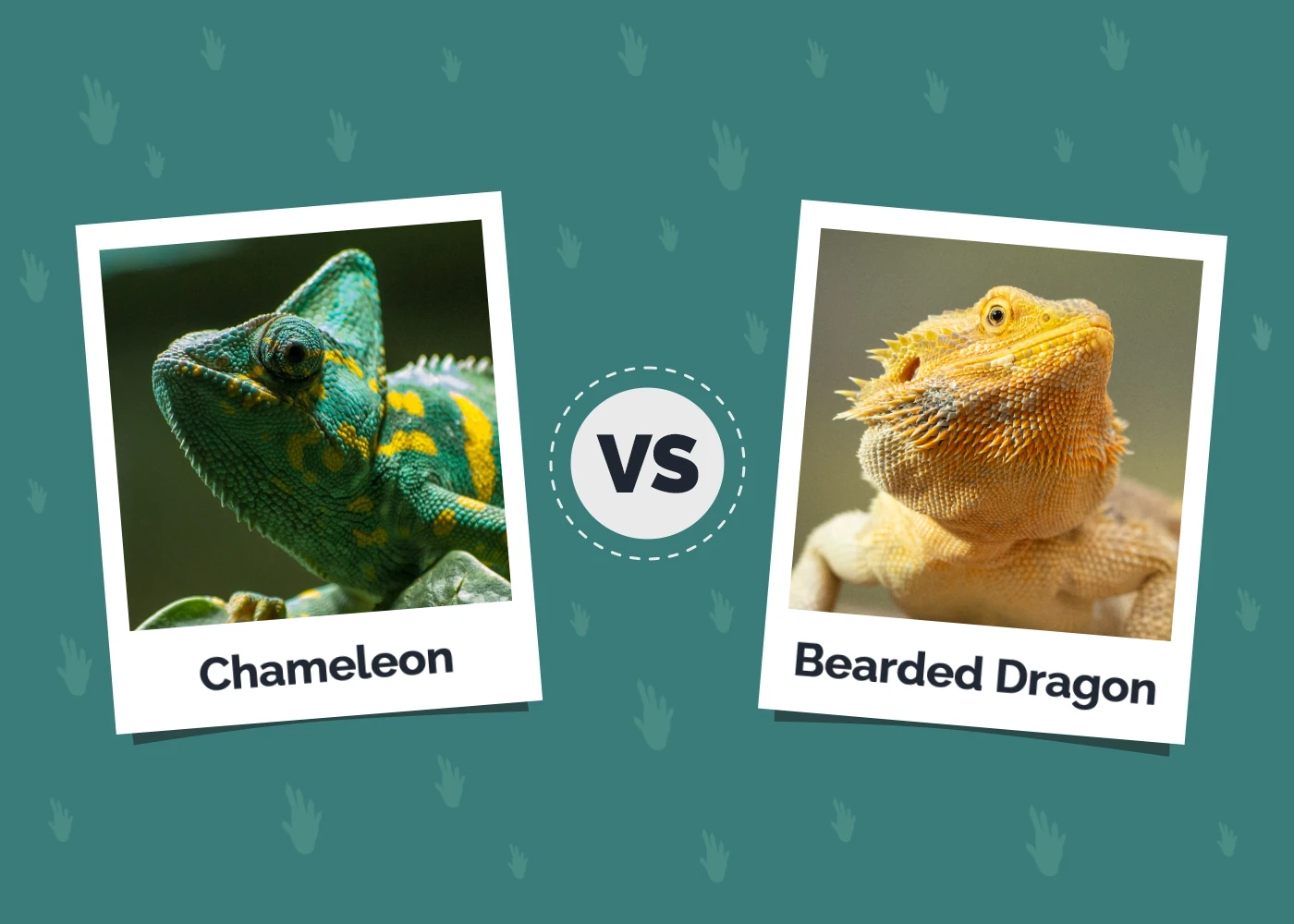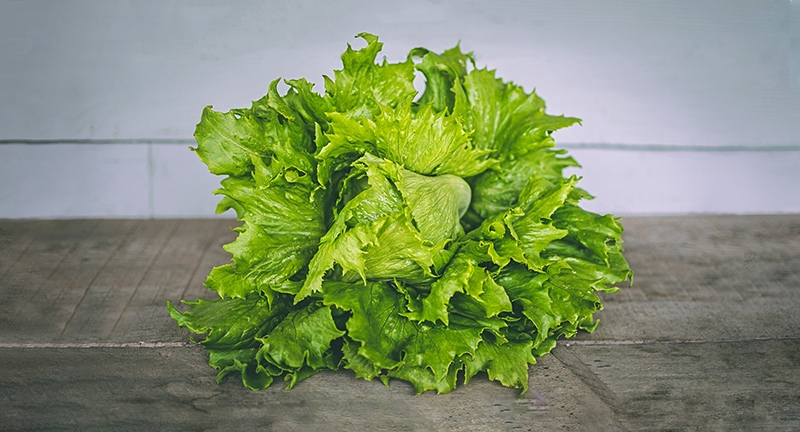Do Bearded Dragons Yawn? Facts & FAQ
Updated on
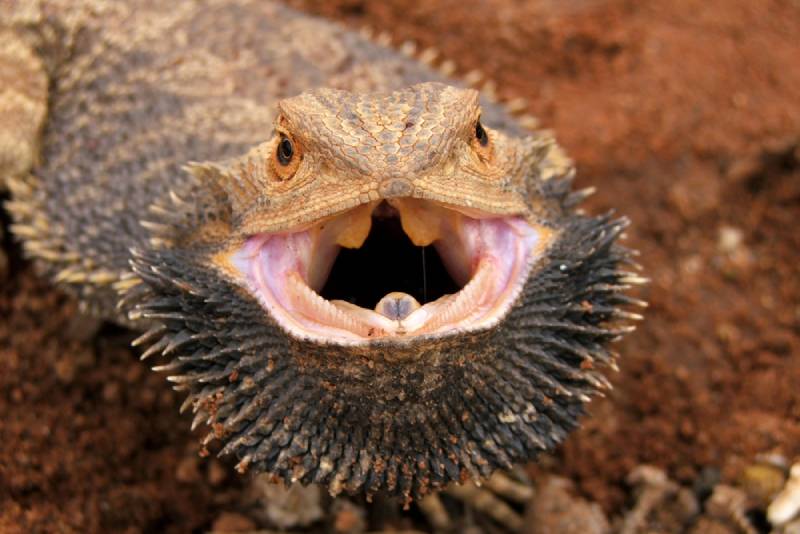
Click to Skip Ahead
Bearded dragons exhibit all kinds of unique behaviors that can be interesting to watch and learn about. If you’ve ever noticed your beardie (bearded dragon) opening their mouth and closing it, you might wonder if this is a yawn or if it means something entirely different.
Most of the time, bearded dragons aren’t exactly yawning but are engaging in a behavior known as gaping. But there are indeed certain instances when beardies will yawn.
Here, we discuss in more detail why beardies yawn or open and close their mouths, so keep reading!
Common Reasons That Bearded Dragons Open Their Mouths
Bearded dragons often open their mouths for thermal regulation. That said, there are other reasons that they do this unique behavior.
Stretching
Bearded dragons sometimes stretch out their beards, which serves a few purposes. If your beardie stretches out their beard and it takes on a black hue, it can mean they feel threatened or aggressive.
If your beardie is new, they are likely still adjusting to you and their new home, so you might want to spend more time bonding with them. Once they are more comfortable, they’ll still stretch their beard, but it won’t necessarily change color.
Sometimes when a bearded dragon stretches their beard, they will also open their mouth, which can happen in the morning, after a nap, and after they’ve eaten a big meal.
They might even repeatedly stretch their beards and open and close their mouths, which can be construed as a stretch and a yawn. Ultimately, it’s a sign of a contented pet.
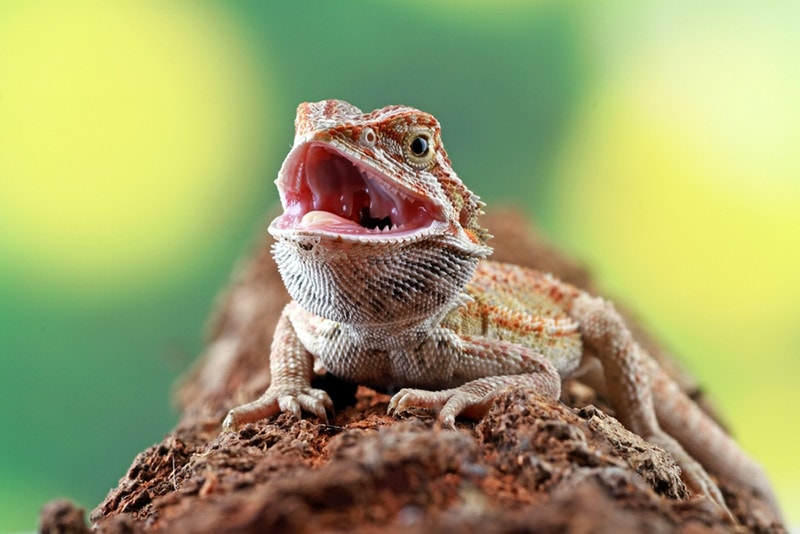
Temperature Regulation
Lizards are unable to sweat, which is how many mammals, including humans, can regulate their body temperature. Sweating enables us to cool down, but bearded dragons need to use a different method.
Beardies will often open their mouths while basking on a rock under the heat lamp, which is their method of regulating their body temperature. Opening their mouths wide helps expel some of the built-up heat in their bodies, so they can remain at an optimal temperature. The other option is leaving the heat lamp, so sometimes it’s just easier to open their mouths.
Every beardie needs both hot and cool areas in their habitat, so they can cool down or warm up as necessary.
Defensive or Aggressive Behavior
If a bearded dragon feels threatened, they might open their mouth and hiss. There’s no confusing this with a yawn! This might occur if you startle them or if your beardie wasn’t handled properly in the past.
A hissing bearded dragon will likely stretch out their beard to appear intimidating and charge at you. Another sign that a beardie is angry is that they have an open mouth combined with head bobbing, a black beard, and a tall stance. There’s definitely potential for a bite, so be cautious.
Shedding
All bearded dragons shed, which happens more frequently when they are young. Once they’ve matured, they tend to shed in smaller patches.
As part of the shedding process, you might see a beardie open their mouth to help loosen the skin around their jaw and head.
Ensure that your pet’s enclosure has the right humidity levels and that they have access to rough surfaces like rocks and branches, which can help the process along. Keep an eye on your beardie in case they experience stuck shed, which can develop into health problems.

Respiratory Infection
For the most part, the bearded dragon will open their mouth for various behavioral reasons. But there is potential for a more serious issue of a respiratory infection.
If the habitat’s humidity levels are too high for an extended period, the beardie will have difficulty breathing the humid air. You’ll need to ensure that the humidity levels are kept at about 35% to 40%.
- Mouth open while breathing
- Difficulty breathing
- Bubbles from the mouth and/or nose
- Crackling or wheezing sounds while breathing
- Loss of appetite
- Weight loss
- Lethargy
- Discharge from the nose and/or mouth
- Sneezing
If your bearded dragon shows any of these signs, take them to your veterinarian immediately.
How Do You Know When Yawning Means Something Is Wrong?

The more you get to know your beardie, the more you’ll start to understand their behavior. So, it shouldn’t take long for you to realize when something is wrong.
If your beardie is yawning more than usual, it could be a precursor to a respiratory illness, but it might also be a sign of discomfort or stress. If your beardie also seems agitated or restless in addition to the yawning, there might be something in their immediate environment causing them stress. Consider the following if your beardie seems upset.
Check Their Behavior
Beardies are friendly, curious, and docile lizards, so if they are behaving differently than this, it could be a sign of illness or stress. If you do notice your beardie acting unusually, speak to your veterinarian.
Check Their Habitat
Your beardie’s enclosure should be large enough for them and have the proper humidity and temperature levels. They also need hiding spots and structures to climb. Ensure that their habitat is in a quiet area and not in a place in your home that’s too noisy. This means not allowing young children or other pets, like cats or dogs, near your beardie’s habitat.
Ensure That They Have the Opportunity to Stretch
Sometimes yawning and stretching go together for bearded dragons, so it’s essential to provide them with a chance to stretch and move their bodies. This can help prepare them for activity, and it reduces stress and promotes overall health.
Handling Your Beardie
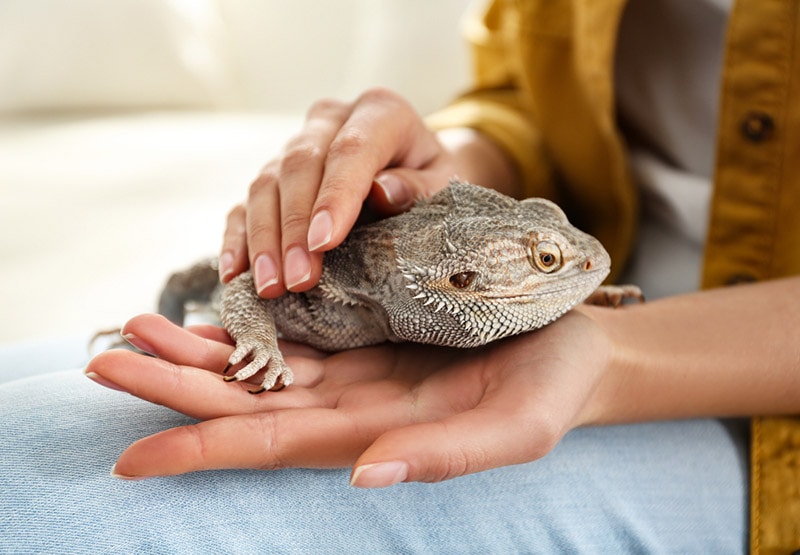
Beardies can get stressed if they are not handled the right way or too frequently. Learn the best ways to handle and pet your bearded dragon. They should be held gently and never picked up by their legs or tails.
When in Doubt, See Your Veterinarian
If you’ve checked everything and your beardie is still yawning, listen to your instincts on these things. If you think that something is wrong, speak to a veterinarian who specializes in reptiles.
Conclusion
For the most part, a beardie that is hanging out with their mouth open is perfectly normal. They are typically gaping so they can keep themselves at the perfect temperature, or they may be just literally yawning.
Sometimes, your beardie might feel threatened, though it should be apparent to you when this is the case. But if they aren’t behaving the way that they usually do, always consult with your veterinarian. They can check your beardie for any health problems or advise you on any steps that you might need to take to keep your pet healthy and well-adjusted.
Featured Image Credit: Ashley Whitworth, Shutterstock


